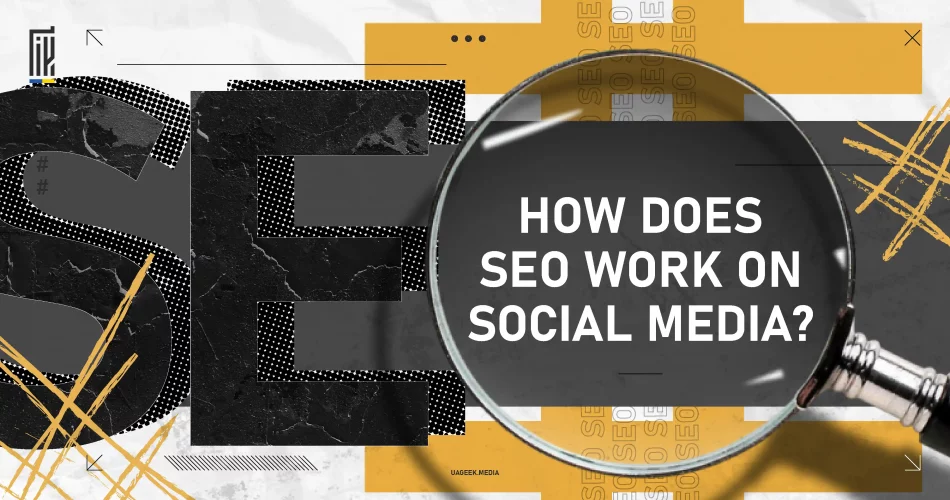Hello, community! Organic traffic is one of the most expensive but also incredibly profitable. It can be obtained in many ways. One of the main methods is SEO optimization. However, while almost everyone understands that optimization allows for traffic generation to a website, you may not have heard about SEO on social media. In that case, let’s explain what it is, how it works, and most importantly – how effective it is.
Before we begin, let’s remind you that we often talk about how to optimize your advertising campaigns and improve their effectiveness. For example, our recent article is dedicated to creatives and their testing. We recommend checking it out!
SEO Optimization of Websites and Social Media – Are They the Same?
Traditional SEO is the optimization of a website, which happens through the following steps:
- Creating the site’s semantic core
- Writing unique texts optimized for key queries
- Optimizing page loading speed
- Working on internal linking: adding internal and external links, etc.
All this is done to achieve one goal – to get as much organic traffic as possible.
It’s probably obvious that most of this cannot be implemented on social media. It’s hard to imagine Zuckerberg allowing you into the semantic core to adjust it for yourself.
SEO on Social Media – How Does It Work?
However, SEO on social media does exist, though it looks a little different. The main focus should be on keywords, especially in titles. This allows your content on social media to rank high in search engine results. A prime example of this is video tutorials starting with “How to…”. Most of these queries work in such a way that Google first recommends relevant YouTube videos, followed by other results.
It works similarly on social media. If you use keywords in your posts, there’s a good chance they will appear in search results. Of course, unlike website optimization, the likelihood of getting significant organic traffic from search engines is rather slim but somewhat predictable.

It’s much easier to promote through search engines using commercial queries. For example, when someone searches not just for “car” but “buy a car,” they will start seeing products, including from Facebook Marketplace. This means only one thing – the opportunity to get that same commercial traffic by not only posting on your page but also adding products to the marketplace, which can be relevant when working with e-commerce.
Hashtags deserve special attention. They gained significant attention in 2021 when Netflix participated in the #tudumchallenge, which initially started on TikTok. The hashtag hype allowed Netflix to significantly increase its followers on Twitter and overall boost the popularity of their social media channels.
So, in conclusion, the main factors influencing SEO optimization on social media are the use of keywords. You should also use all the tools the platform offers: adding products to the marketplace, Reels with hashtags, etc.
Promoting a Website Using Social Media
We also want to touch on another extremely important topic – promoting the main resource, the website, through social media. What are we talking about?
When forming search results, Google also pays attention to social signals. For example, if you add social activity buttons (share, like, repost) to your website, and readers frequently use them, it significantly increases the likelihood of improving your search rankings.
In turn, this can eventually create a viral effect: when your content is nearly everywhere for a key query. You may have noticed this with large brands, where for the same query, you see in the results:
- The brand’s website
- Links to videos hosted on the brand’s channel
- Products listed on marketplaces owned by the brand
All this becomes possible when your keywords go viral and become popular beyond just your website, aided by social activity functionality.
But there are also obvious advantages – an increase in backlinks to your resource. As we know, the more resources that link to you, the more authoritative your resource becomes in the eyes of the search engine. This is why it makes sense to spend time and resources to manage both a website and social media, use cross-posting, and similar tools. As a result, you only increase the potential amount of organic traffic you can receive.
What’s the Result?
SEO on social media not only exists but is actively used by many large brands, including Netflix. Additionally, SEO optimization also involves using social media to improve website rankings. All the methods mentioned above help increase the amount of organic traffic – the most valuable traffic on the market.
Did you know that SEO on social media even exists, or have you just never been interested in this topic? We would love to hear your thoughts in our Telegram community, where we invite you!
Best regards, Your Geek!


Comments